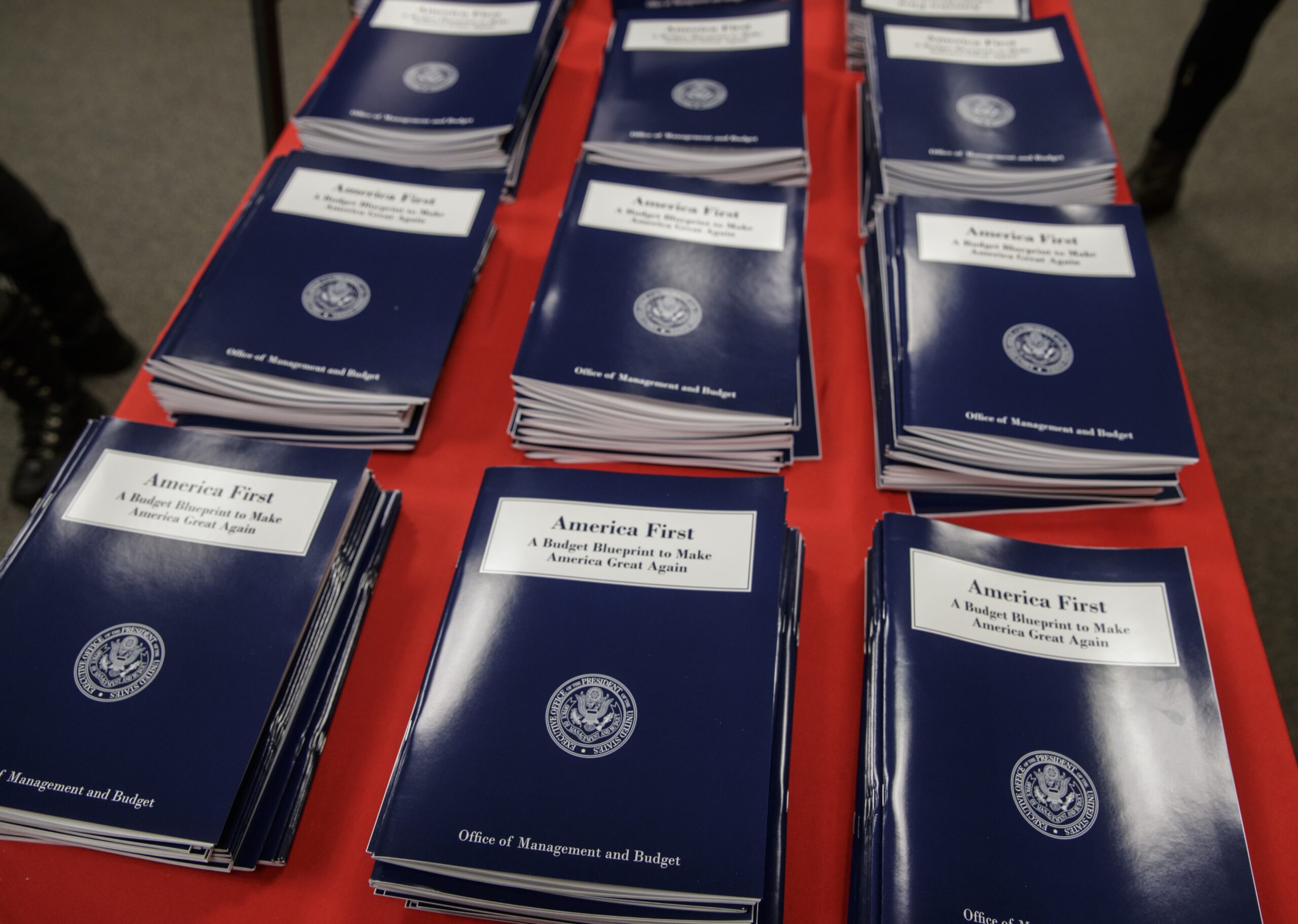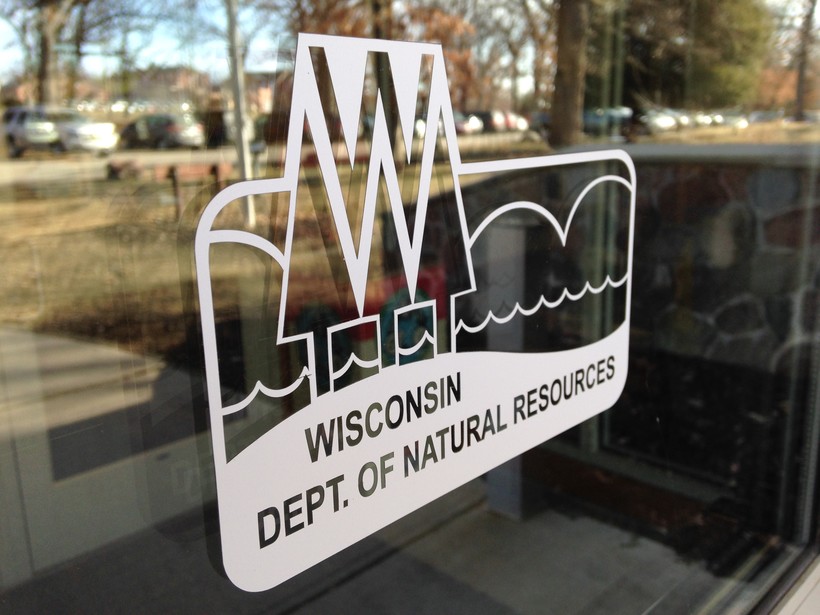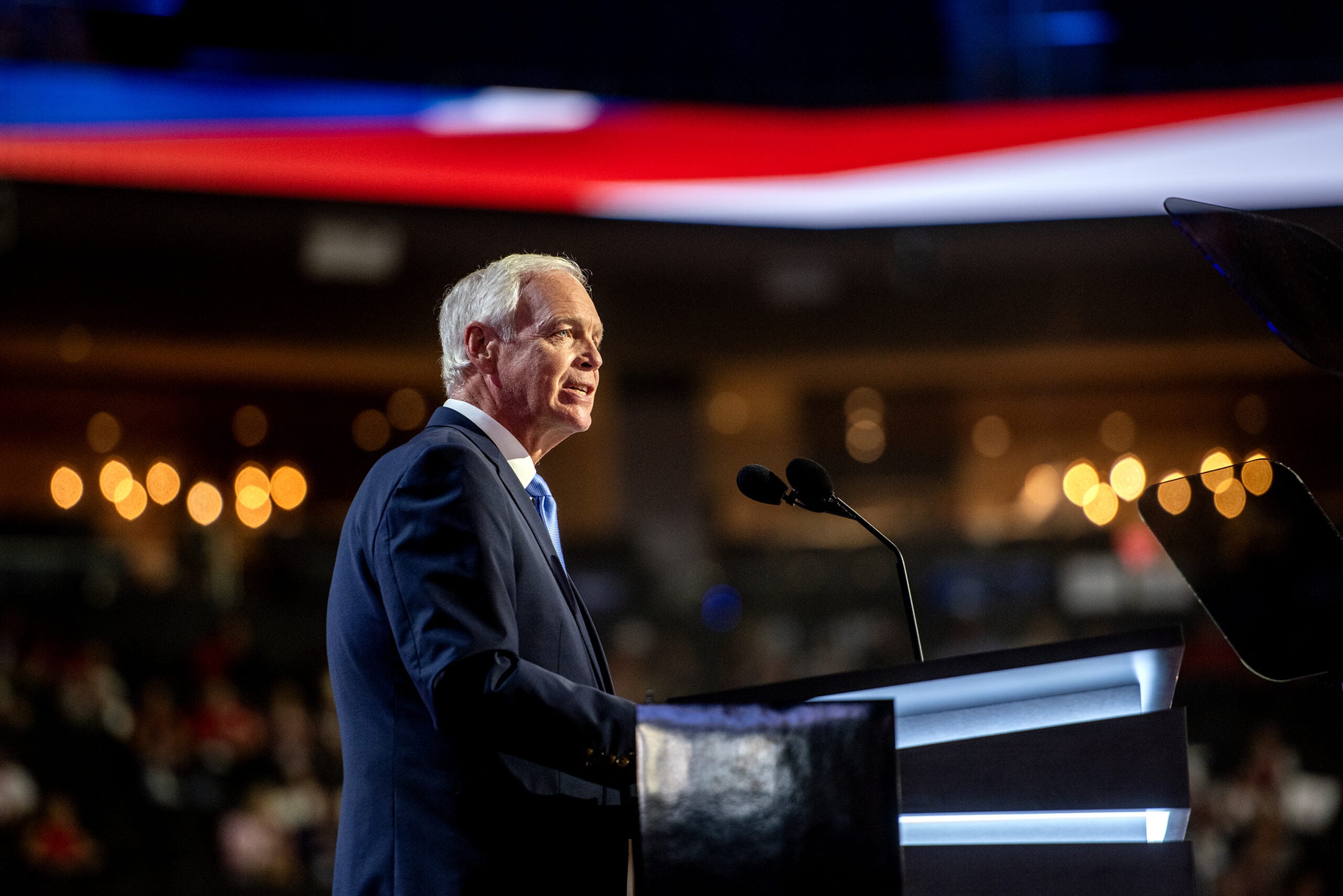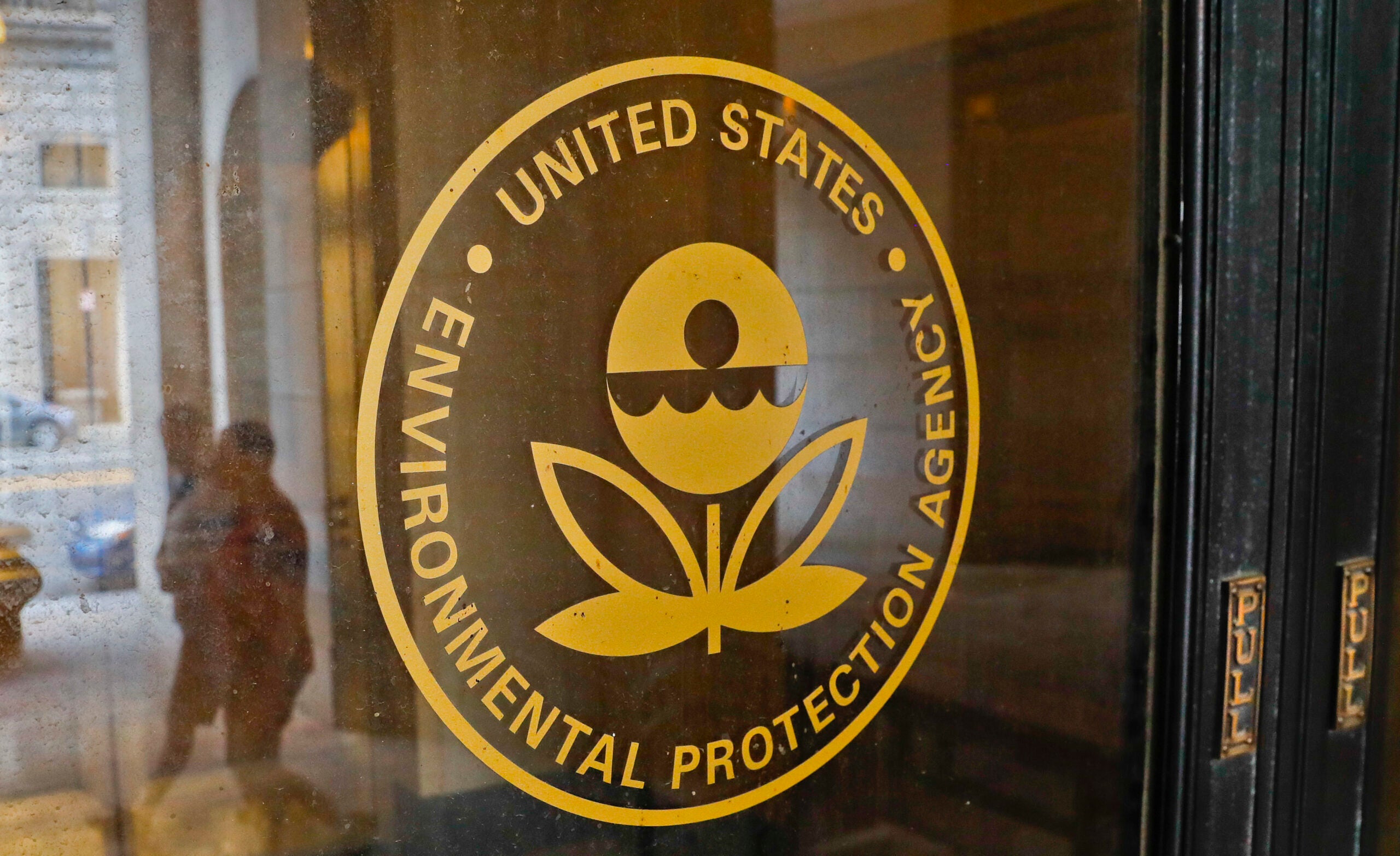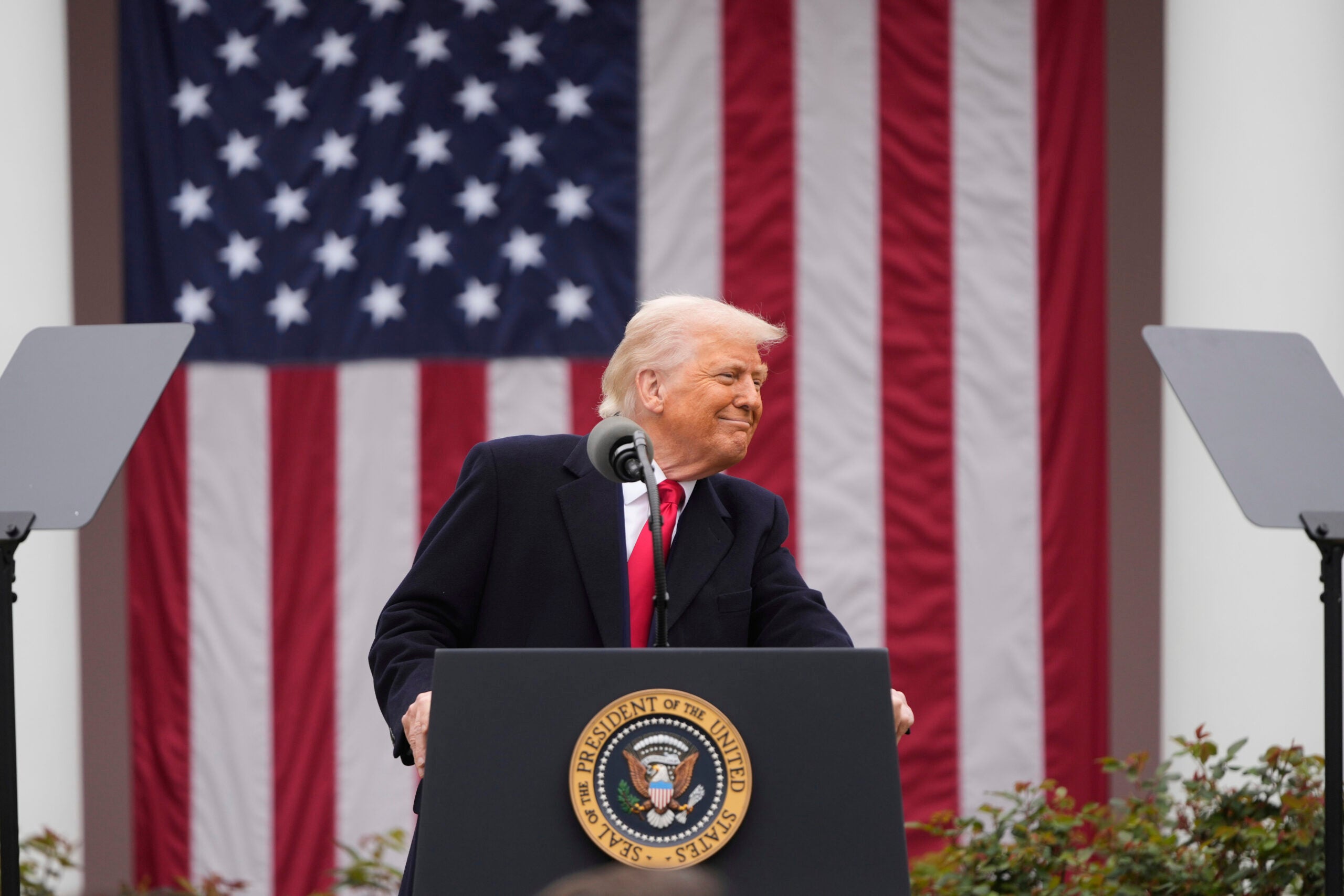More than 50 federal programs would be eliminated or see deep cuts under President Donald Trump’s “America First” budget, and the cuts could have wide-ranging impacts for Wisconsin’s rural communities.
Trump’s budget zeroes out programs such as the Community Development Block Grant program that aids low-income citizens, saving the government about $3 billion, according to the proposed budget.
Sheldon Johnson, executive director of the Northwest Regional Planning Commission, said the grants from the U.S. Department of Housing and Urban Development help cash-strapped communities and homeowners repair properties.
News with a little more humanity
WPR’s “Wisconsin Today” newsletter keeps you connected to the state you love without feeling overwhelmed. No paywall. No agenda. No corporate filter.
“If the president’s budget was to pass in the future that eliminated that program completely, there’d be very limited public facility improvement funds or housing rehabilitation funds available at the state level currently.”
Johnson said they’ve rehabilitated up to 170 households across 10 counties in northern Wisconsin with CDBG funding over the past few years.
“If it wasn’t for the program, they would have water running in their roofs per chance and it would certainly devalue their home, which has a trickle-down effect,” Johnson said. “If you look at it from the improvement values the counties have on equalized value, as homes deteriorate, values deteriorate. That could have a negative impact on the overall tax situation as well.”
Johnson said it could also impact the region’s ability to invest in economic development ventures that require improvements. Wisconsin received around $23 million from the grant program, according to most recent federal figures.
The potential cut to make HUD leaner has caught Gov. Scott Walker’s attention. Walker said Thursday there may be ways to make the “vital” block grant program more efficient.
“We’ve consistently used that for everything from local community development to job creation to even housing development,” Walker said. “So those are areas we’re going to work not only with the administration on, but in particular with the Congress on.”
Walker also expressed concern about the proposal to cut federal funding for the Meals on Wheels program, which provides food for low-income older adults who are homebound.
“As a kid, I can still remember going out with my mom helping to deliver Meals On Wheels,” Walker said. “That’s an important thing for shut-ins in our state. I saw it first hand as a kid. I know it’s still important today.”
Walker said it’s early in the federal budget process, but he plans to talk with congressional leaders about the potential impact of cuts and offer some alternative ways to fund programs.
Other low-income programs that would be eliminated under Trump’s proposed budget include the Low Income Home Energy Assistance Program from the federal Division of Energy Assistance and Office of Community Services. Cutting LIHEAP would save about $4.2 billion, according to the budget.
Lynn Stringer, Wisconsin Energy Assistance program coordinator for Douglas County, said they provide heating assistance to around 1,800 homes each year.
“I can’t imagine that it wouldn’t significantly impact those people, and we’re talking elderly. We’re talking veterans. We’re talking families with small children,” Stringer said. “We’re talking anyone who might need assistance.”
The county paid out around $740,000 in heating assistance in 2016. To date, around $487,000 has been awarded to aid county residents with heating bills. Stringer fears the cuts may leave some literally out in the cold.
“(We have) very cold winters up here. Even on a good year, it’s cold,” Stringer said. “Fuel is expensive sometimes.”
The president’s budget would also eliminate the U.S. Department of Energy Weatherization Assistance Program, which includes repairs to homes to improve energy efficiency.
Denise Lutz, executive director of the Ashland County Housing Authority, said elimination these programs will greatly impact their agency. The county’s housing authority administers the weatherization and emergency assistance programs. The agency would lose around $289,000 from the U.S. Department of Energy and around $500,000 in emergency assistance funding.
“We have dying communities up here. We have aging communities. We have hardly any jobs up here. They count on that fuel assistance. How are they going to pay their heating bills? How are they going to stay in their homes?” Lutz said. “Does (Trump) have a back-up plan for that?”
The housing authority serves six counties and three tribes, including the Red Cliff, Bad River and Lac du Flambeau tribes. The agency weatherizes more than 200 units each year and helped repair or replace 267 furnaces in 2016.
Trump’s budget states such low-income programs haven’t performed well and eliminating the programs would “reduce federal intervention in state-level energy policy and implementation.”
Slash To Great Lakes Restoration Initiative
Great Lakes mayors, environmental groups and lawmakers are also speaking out against Trump’s proposed elimination of the Great Lakes Restoration Initiative. The federal Great Lakes cleanup program has provided more than $2 billion for restoration projects since 2010.
David Ullrich, executive director of the Great Lakes and St. Lawrence Cities Initiative, said the president’s proposal would be devastating to the Great Lakes region.
“So much important work has been done over the last seven years that this will have a tremendous effect,” Ullrich said. “The important thing is that this is not just ecological restoration. This is economic revitalization. It is so important to all of these cities to have a clean environment.”
Todd Ambs, campaign director for the Healing Our Waters Coalition, traveled to Washington for Great Lakes Days this week. He said congressional leaders are against eliminating the federal cleanup program.
“There is broad bipartisan support for reinstating the funding for the Great Lakes Restoration Initiative to the $300 million,” Ambs said.
The office of U.S. Rep. Sean Duffy, R-Wisconsin, issued a statement from the congressman about the elimination of the program.
“I will continue to fight every day to protect these critical funds and will work with the Trump administration to make sure the president knows how important it is that these restoration activities continue,” Duffy said.
A spokeswoman with the Great Lakes Indian Fish and Wildlife Commission issued a statement, saying the program is vital for all communities.
“It allows tribal, state and local governments the flexibility to pursue projects of their highest priority and enhances the ability of governments at all levels to cooperatively manage the quality of the Great Lakes,” the statement reads. “GLIFWC fully supports the continuation of the GLRI, with federal support at no less than current amounts.”
The president’s budget proposal slices domestic programs to provide a $54 billion increase in defense spending.
Editor’s Note: This story has been updated to include comments from Gov. Scott Walker and reporting from WPR reporter Chuck Quirmbach.
Wisconsin Public Radio, © Copyright 2026, Board of Regents of the University of Wisconsin System and Wisconsin Educational Communications Board.
